Fritextsökning
Artiklar per år
Innehållstyper
-
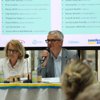
Ny förordning om hälsodata i fokus på EU-konferens
Hur ska det bli möjligt att dela hälsodata över hela EU? Vad innebär den nya förordningen, European Health Data Space, som är tänkt att börja gälla inom unionen? Det var några av de frågor som diskuterades i samband med en konferens tidigare i veckan.
-

The Swedish Life Science Office: “We lost in both coordination and manpower”
Since the turn of the year, the Swedish government’s life science office has operated at a lower capacity. Life Science Sweden has spoken to Pontus Holm, Departmental Secretary at the office, about the ongoing work.
-

Neanderthal gene variants may cause Viking disease
A new study suggests that the so-called Viking disease, which affects the hand function in many older people, may be linked to gene variants inherited from Neanderthals.
-

Glad sommar! – och chefredaktörens lästips
Life Science Swedens chefredaktör sammanfattar året hittills och ger lästips inför sommaren.
-

Lucy Robertshaw: Artificial intelligence – is this really going to transform a patient’s life?
In a column Lucy Robertshaw reflects on how AI and new regulations will affect healthcare, innovation and the lives of future patients.
-

Boule värvar från Oncopeptides
Boule Diagnostics rekryterar Holger Lembrér som ny finanschef. Han tillträder i januari 2024.
-

Anna Törner: The minute between life and death
“I have never told anyone about this day that happened more than 20 years ago. But I sometimes reflect on what happened, on what might have happened. When I try to understand why I haven’t told anyone, I find the answer: a feeling of shame
-

AstraZeneca moves to brewery quarters in central Copenhagen
AstraZeneca in Denmark is moving its business into central Copenhagen and the old brewery quarters in Carlsberg Byen.
-
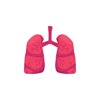
Nanoparticles to help detect pulmonary disease
Nanoparticles behave in a certain way in the air. Using this knowledge, researchers at Lund University have developed a new measurement method for lung examinations based on the phenomenon.
-

Han blir Chalmers nya rektor
Martin Nilsson Jacobi har utsetts till ny rektor och vd för Chalmers tekniska högskola. Han är idag vd för Chalmersstiftelsen och har en lång bakgrund inom lärosätet.
-

This is the future location of the new national innovation cluster
Mölndal and Goco Health Innovation City will be the site of a new national innovation cluster for advanced therapies. The business community and the Swedish government are splitting the costs of the project, which is expected to produce new treatments
-

Rapid developments in AI – “All stakeholders are struggling to understand it”
Artificial intelligence is being discussed more and more, and developments in the field are moving rapidly. As the Swedish Medical Products Agency testifies, keeping up with developments is not easy.
-

Study: Semaglutide tablet produces weight loss
The pharmaceutical semaglutide is effective for weight loss even when given in tablet form, according to a phase 3 study.
-

Egetis lägger ned buddiskussionerna
Svenska läkemedelsutvecklaren Egetis Therapeutics har gått ut med att diskussionerna om ett potentiellt förvärv av företaget nu har lagts ner.
-

Norwegian company wins bidding battle for Sensidose
The lengthy battle to acquire medical device company Sensidose is apparently over. Generic medicines company EQL Pharma is pulling out, selling its shares and leaving the way open for Norwegian company Navamedic.
-
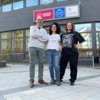
Test ska visa om antibiotika fungerar
En metod utvecklad av forskare från Karolinska insitutet ska kunna hjälpa till att visa om bakterier svarar på en antibiotikabehandling. De har nu startat ett företag för att vidareutveckla tekniken till ett snabbtest.
-

Anna Törner: Minuten mellan liv och död
”Jag har aldrig berättat för någon enda om den här dagen för mer än 20 år sedan. Men jag tänker ibland på vad som hände, på vad som kunde ha hänt. När jag försöker förstå varför jag inte berättat för någon landar jag i känslan skam. Det finns liksom ingen förlåtelse för något som detta, även om det är högst mänskligt att distraheras ett ögonblick”, skriver Anna Törner i en krönika.
-

Samuel Lagercrantz: The government’s performance in healthcare and life sciences so far
Since the change of government in Sweden, developments in the healthcare sector have shown promising signs, but the outlook in life sciences is less promising, writes Samuel Lagercrantz in an editorial.
-
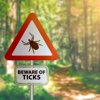
The first Lyme disease vaccine faces a delay
Pfizer and Valneva’s Lyme disease vaccine, which could be the first of its kind, is facing delays of about a year. The reason is problems at trial sites in the United States, which have forced the companies to drop half of the participants in an ongoing Phase III study.
-
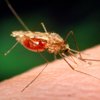
A new malaria vaccine offers hope but much more research is still needed
There has long been no vaccine against malaria, but there have been breakthroughs in recent years. However, it is still unclear how we become immune to the malaria parasite, and this is a vital piece of the puzzle for creating effective vaccines, says malaria researcher Kristina Persson.
-

Study: Chat GPT is more empathetic than doctors
The AI tool Chat GPT is not only more accurate when it comes to answering patient questions – the chatbot is also perceived as almost 10 times more empathetic than real doctors, a new study reveals.
-

Looking for greater Nordic cooperation – “We have Norway and Finland in our sights”
How can Medicon Valley Alliance bring the big pharmaceutical companies back to the organisation? Life Science Sweden discussed this topic and others with the cluster organisation’s new radar pair.
-

Så vill Swelife stärka svensk life science
Den svenska life science-strategin behöver uppdateras inom både prevention av ohälsa och utveckling av precisionsmedicin. Den slutsatsen drar Swelife i en ny rapport, där man gång på gång efterlyser ett tydligare ledarskap.
-

Nytt malariavaccin ger hopp men mycket forskning återstår
Länge har det saknats vaccin mot malaria men på senare år har genombrott skett. Men hur vi blir immuna mot malariaparasiten är fortfarande inte klarlagt. Detta menar malariaforskaren Kristina Persson är en viktig pusselbit för att kunna skapa effektiva vaccin.